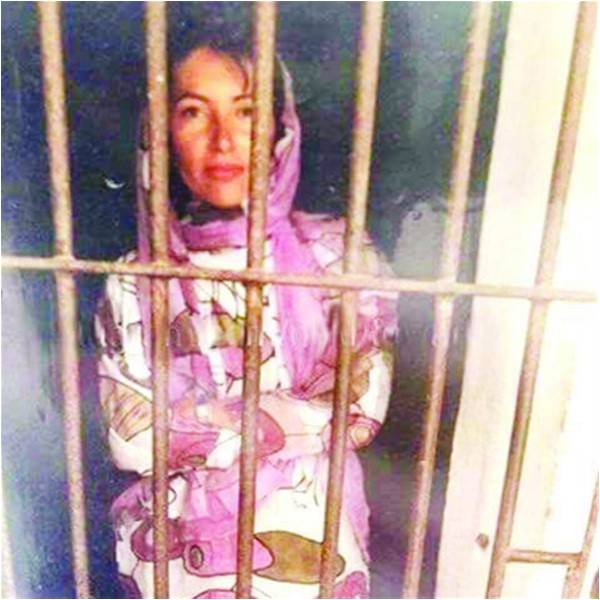
This photo is of Benazir Bhutto in Sukkur jail, at a period in her life when she was repeatedly kept under either house arrest or in detention.
She and her mother Nusrat Bhutto were released from Sihala at the end of May 1979, seven weeks after her father Zulfikar Ali Bhutto’s death. They returned to their home at 70 Clifton in Karachi. Benazir eventually started working with her father’s Pakistan Peoples Party to mount an opposition to the scheduled elections. But Gen Zia ul Haq canceled them in October a month before they were supposed to take place. She and her mother were placed under ‘house arrest’ at their home Al-Murtaza in Larkana for six months. This would be BB’s seventh time since the coup and imposition of martial law two years earlier. She was 26.
In the isolation of Al-Murtaza She and her mother listened to the BBC Urdu every night and in December 1979 they heard of Russian troops entering Afghanistan.
In March 1980, Benazir and her mother were abruptly freed. They returned to Karachi but feared they would be arrested again. (By February-March 1981, the nine-party alliance against Zia, the Movement for Restoration of Democracy, was formed.) This time they were separated. Benazir was sent to Sukkur jail. She was not told why.
Her cell had no electricity at night and without blankets or warm clothing she suffered in the cold. She slept on a charpoy. She lost weight as she could not eat the watery soup, tea with bread she was given. Sometimes, the prison guards offered her pumpkin or fish. Finally, unable even to try to eat the food, she stopped eating altogether.
She was allowed out for three days to attend her sister Sanam’s wedding. After international pressure was mounted to release her, it was only in 1984 that she was freed to seek treatment for a severe ear infection and put on a flight to Geneva. She had been under arrest for three years by then.
She and her mother Nusrat Bhutto were released from Sihala at the end of May 1979, seven weeks after her father Zulfikar Ali Bhutto’s death. They returned to their home at 70 Clifton in Karachi. Benazir eventually started working with her father’s Pakistan Peoples Party to mount an opposition to the scheduled elections. But Gen Zia ul Haq canceled them in October a month before they were supposed to take place. She and her mother were placed under ‘house arrest’ at their home Al-Murtaza in Larkana for six months. This would be BB’s seventh time since the coup and imposition of martial law two years earlier. She was 26.
In the isolation of Al-Murtaza She and her mother listened to the BBC Urdu every night and in December 1979 they heard of Russian troops entering Afghanistan.
In March 1980, Benazir and her mother were abruptly freed. They returned to Karachi but feared they would be arrested again. (By February-March 1981, the nine-party alliance against Zia, the Movement for Restoration of Democracy, was formed.) This time they were separated. Benazir was sent to Sukkur jail. She was not told why.
Her cell had no electricity at night and without blankets or warm clothing she suffered in the cold. She slept on a charpoy. She lost weight as she could not eat the watery soup, tea with bread she was given. Sometimes, the prison guards offered her pumpkin or fish. Finally, unable even to try to eat the food, she stopped eating altogether.
She was allowed out for three days to attend her sister Sanam’s wedding. After international pressure was mounted to release her, it was only in 1984 that she was freed to seek treatment for a severe ear infection and put on a flight to Geneva. She had been under arrest for three years by then.

